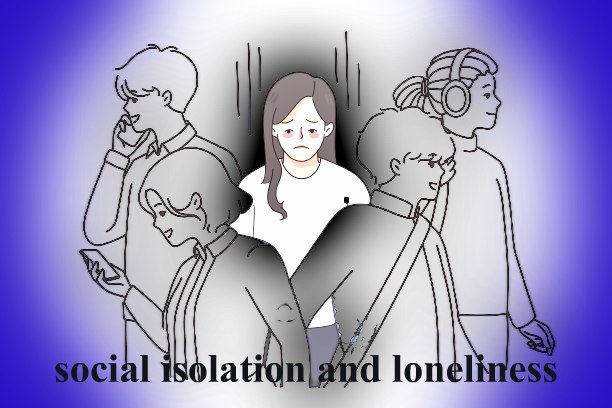Quiet Power Summary
Tag Line: Quiet Power identifies the hidden superpowers of introverts and empowers them by helping them understand why it’s so difficult to be quiet in a world that’s loud and how to ease their way into becoming confident in social situations.
Have you ever noticed there are extroverts all around us? The world admires people who like to draw attention to themselves. People praise social media influencers, movie stars, and pop stars.
The world doesn’t just admire these people, it rewards them too. Kids who regularly raise their hand in school tend to get better grades. In the working world, usually, the most outspoken people are the ones who climb the corporate ladder fastest.
So what about the rest of us who are more introverted? How are we supposed to get by in an extroverted world without betraying our introverted nature? In Quiet Power: The Secret Strengths of Extroverted Kids, author Susan Cain powerfully changes the rhetoric around introverts.
She offers a sensible guide for all young introverts in today’s world that can help them navigate challenges and find success. Best of all, she offers hope for introverts around the world that they can make a difference in their own quiet way.
Let’s see how much we can discover in just 3 lessons:
1. The world doesn’t understand the true power of introverts, who mistakenly think something is wrong with them.
2. Teachers have to use the right techniques if they want to reach out to quiet students.
3. If you’re an introvert you can succeed with the help of friends, a quiet spot, and focus.
Shhh, I’m trying to read about the power of introverts! Let’s get right to it!
Lesson 1: Introverts think something is wrong with them because the world doesn’t understand them.
First, Cain explains what it really means to be an introvert, which is often different than what people assume. Not everyone is all introvert or extrovert, so you may not fall into either category. This middle ground is referred to as “ambivert.”
You’ve probably met someone who is quiet and private at work, but yet when they are around close friends, they talk tons. In the same way, there are also people who others see as extroverted enjoy being alone at times.
Naturally, finding one simple definition for an introvert is hard. But one primary characteristic most have is a rich inner life. It doesn’t mean they don’t like being around others. Instead, they tend to look within themselves and like to be in quiet and safe environments to recharge.
Because of all of the misconceptions out there, introverts can think there is something wrong with them. But you can rest assured that there is nothing wrong with you if you steer clear of crowded environments like parties. There is actually a scientific basis for this tendency.
Studies have found that the nervous system of an introvert is actually more delicate than the average person, meaning they are more sensitive to sounds, sights, and tastes around them. Because of this, they have a stronger reaction to their environment and everything happening in it than other people.
So if you’re an introvert, you don’t have to go on believing there is something wrong with the way you naturally are. Cain says it isn’t something that needs to be fixed, but rather a quality that carries its own unique advantages.
Lesson 2: If teachers want to connect with and help quiet students, they must be intentional about their teaching techniques.
Teachers often hold classroom discussions as a way to expose students to different points of view. While this can be good, it tends to put introverted kids at a disadvantage. The expectation that everyone participates in class verbally ignores the fact that some good students might be afraid to voice their opinions in front of the class.
One student that the author spoke to described her experience in a class where her teacher gave each student three sticks. They had to sit in a circle and talk about a specific topic, and each time they contributed to the discussion they could get rid of a stick. By the end of class, if you had remaining sticks, the teacher would lower your grade that day.
Techniques like this don’t lead to anything meaningful and are actually harmful. Many kids just said meaningless things to get rid of sticks and clearly, introverts were punished for their quiet nature.
If you’re introverted, the best way to make sure your needs are met in the classroom is to explain your real fear of speaking in public to teachers so they can make necessary adjustments. An example of one of these adjustments would be speaking to smaller groups rather than large ones.
A useful technique for teachers Cain shares is the “Think/Pair/Share” approach. To do this, a teacher designates a set amount of time for thinking alone, then having students join in pairs to discuss their thoughts. After this, the teacher gathers the class together to share what they talked about.
One-on-one discussions are much more relaxed for introverts but still help them participate in class. This method is a win-win because the student is much more at ease and the teacher can still know that they engaged in a discussion.
Lesson 3: Use the power of friends, a quiet spot, and focus if you want to succeed as an introvert.
One of the most stressful things for an introvert is attending a crowded event with strangers. They can steer clear of things like this for the most part, but there are times when this is unavoidable.
If this is you, the author gives tips to help you get through it. Her first is to meet up before an event with a friend or two and go together. Having a trusted friend is far less distressing than going to a party alone.
Next, remember to breathe and take time to recharge while you are at the event. Constant noise is exhausting to an introvert, so take the time to find a quiet place where you can restore for a bit. Using these tips, you can be true to yourself and still enjoy a party.
Cain also says it’s possible to be an introvert and a team player. Do you want to play a team sport? You can practice and hone down on your skills outside of the team setting so you are ready when it comes time to play.
There are other ways you can quietly improve your skills. One of these is visualizing your success. This takes advantage of an introvert’s heightened imagination and focus. Before a game, instead of chest bumps and shouting to pump yourself up like some of your teammates might, you can quietly sit and visualize your success.
All of this goes to say that you don’t have to let your introversion hold you back from accomplishing things in your life. Find a way that works for you, and use your gift for introspection and intense focus to excel.
Final Words
Quiet Power is such a great book! I always knew that there was something powerful about my quiet side. I love that this had some really great science about introverts and that adds a lot of credibility to what it teaches.








